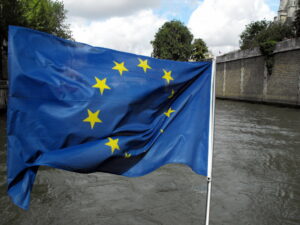The number of investigations into businesses by the Environment Agency has increased by 12% since 2018, according to law and consultancy firm RPC.
The increase of 5,518 in 2018 to 6,164 in 2019 comes as the Environment Agency seeks to crack down on environmental breaches on water, waste management and agriculture.
The water industry saw a record high number of investigations, with 1,807 in 2019 compared to 1,683 in the previous year.
River dumping is a major source of water pollution, with research showing that just 14% of rivers in England and Wales are close to their natural state.
The Environment Agency has a target to tackle water pollution with an aim for 75% of rivers in England to meet European standards by 2027. RPC has said that this target could explain the increase in the number of investigations.
The increase in investigations may also be related to the increase of extreme flooding events because flooding can lead to an increase in pollution when sewage systems are overrun.
Earlier this year (January 16), the government announced the creation of a new task force, the Joint Unit for Waste Crime (JUWC), this task force has been set up in response to increasing incidences of businesses dumping hazardous materials on private land and waste being falsely labelled so it can be exported. The task force will enable the Environment Agency to carry out even more investigations in the future.
Steven Aitken from RPC said: ‘In the wake of this rise in investigations, businesses will need to ensure that they avoid falling foul of environmental laws in their operating practices, otherwise they may be subject to prosecution and liable to pay high fines.’
In related news, in November 2019, local, regional, national and global companies were awarded the ‘River-Friendly Business’ status through an initiative that is helping companies work together to tackle water pollution.
Run by charity Trent Rivers Trust (TRT) and backed by the Environment Agency and Severn Trent, the accreditation scheme, which was launched in 2018, awards businesses based within the Trent catchment Bronze, Silver and Gold status for helping to improve their local water environment.
Photo Credit – Pixabay
















We invite all the participants across the world to attend the International Conference on Global Warming and Natural Disasters during June 01-02, 2020 Sydney, Australia. The theme of the conference is “Alarming Signs of Global Warming!! Preventive solutions towards climate catastrophe” and to encourage young minds and their research abilities by providing an opportunity to meet the experts in the field of Global Warming and Natural Disasters. Global Warming Congress 2020.